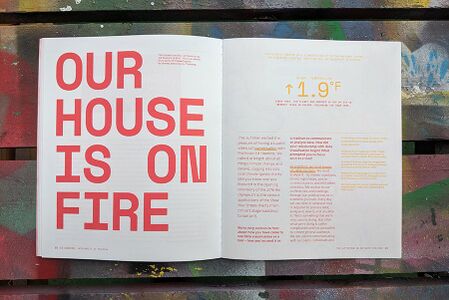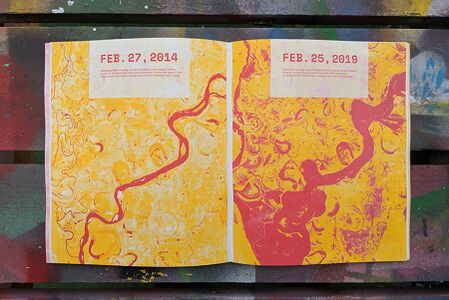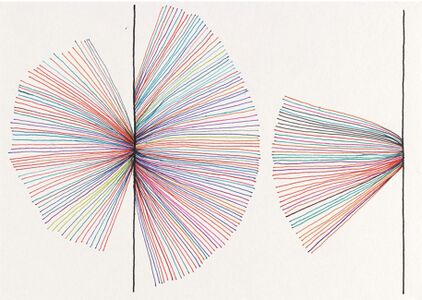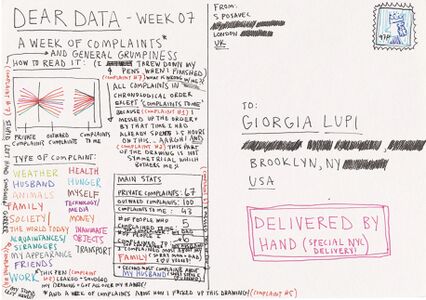User:Zpalomagar/PYRATECHNIC: Difference between revisions
Zpalomagar (talk | contribs) No edit summary |
Zpalomagar (talk | contribs) |
||
| Line 1: | Line 1: | ||
==References== | ==References== | ||
===Market Cafe Magazine=== | |||
Market Cafe Magazine is a zine about data visualization founded in 2017 by information designers and educators Tiziana Alocci and Piero Zagami. | |||
Reading Market Cafe Magazine you will hear from different voices about what designing information means and where it's going. Our mad research brought us to discover the most talented and finest people in the industry to guide you through this journey. Market Cafe Magazine is 100% independent, self-published and self-distributed in London. | |||
Market Cafe Magazine is not only a zine. It's also an online and offline community: we organise workshops and meetups to discuss the different sides of working with data. Subscribe our spam-free newsletter, follow us on Instagram and Twitter or join our Facebook group Data Loves Zines to know about our next events. | |||
<gallery heights=200px mode="packed-hover"> | |||
File:Mcm1.jpeg | |||
File:Mcm2.jpeg | |||
</gallery> | |||
===Dear Data=== | ===Dear Data=== | ||
Dear Data is a year-long, analog data drawing project by Giorgia Lupi and Stefanie Posavec, two award-winning information designers living on different sides of the Atlantic.By collecting and hand drawing their personal data and sending it to each other in the form of postcards, they became friends. | Dear Data is a year-long, analog data drawing project by Giorgia Lupi and Stefanie Posavec, two award-winning information designers living on different sides of the Atlantic.By collecting and hand drawing their personal data and sending it to each other in the form of postcards, they became friends. | ||
Revision as of 15:44, 2 November 2019
References
Market Cafe Magazine
Market Cafe Magazine is a zine about data visualization founded in 2017 by information designers and educators Tiziana Alocci and Piero Zagami.
Reading Market Cafe Magazine you will hear from different voices about what designing information means and where it's going. Our mad research brought us to discover the most talented and finest people in the industry to guide you through this journey. Market Cafe Magazine is 100% independent, self-published and self-distributed in London.
Market Cafe Magazine is not only a zine. It's also an online and offline community: we organise workshops and meetups to discuss the different sides of working with data. Subscribe our spam-free newsletter, follow us on Instagram and Twitter or join our Facebook group Data Loves Zines to know about our next events.
Dear Data
Dear Data is a year-long, analog data drawing project by Giorgia Lupi and Stefanie Posavec, two award-winning information designers living on different sides of the Atlantic.By collecting and hand drawing their personal data and sending it to each other in the form of postcards, they became friends.
Each week, and for a year, we collected and measured a particular type of data about our lives, used this data to make a drawing on a postcard-sized sheet of paper, and then dropped the postcard in an English “postbox” (Stefanie) or an American “mailbox” (Giorgia)!Eventually, the postcard arrived at the other person’s address with all the scuff marks of its journey over the ocean: a type of “slow data” transmission.
Over the fifty-two weeks, the collecting of data about our lives became a kind of ritual. We would spend the week noticing and noting down our activities or thoughts, before translating this information into a hand-drawn visualization.
On the front of the postcard there would be a unique representation of our weekly data, and, on the other side (in addition to the necessary postage and address), we would squeeze in detailed keys to our drawings: the code to enable the recipient to decipher the picture, and to fantasize about what had happened to her new friend the week before.
We prefer to approach data in a slower, more analogue way. We’ve always conceived Dear Data as a “personal documentary” rather than a quantified-self project which is a subtle – but important – distinction. Instead of using data just to become more efficient, we argue we can use data to become more humane and to connect with ourselves and others at a deeper level.




